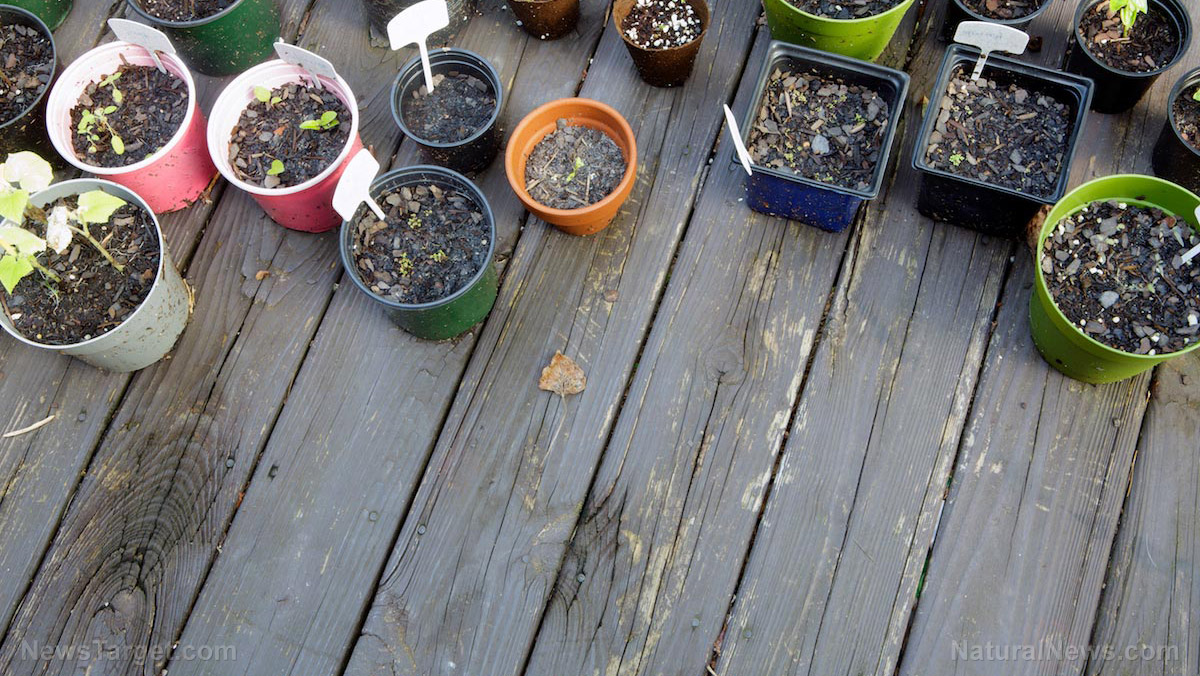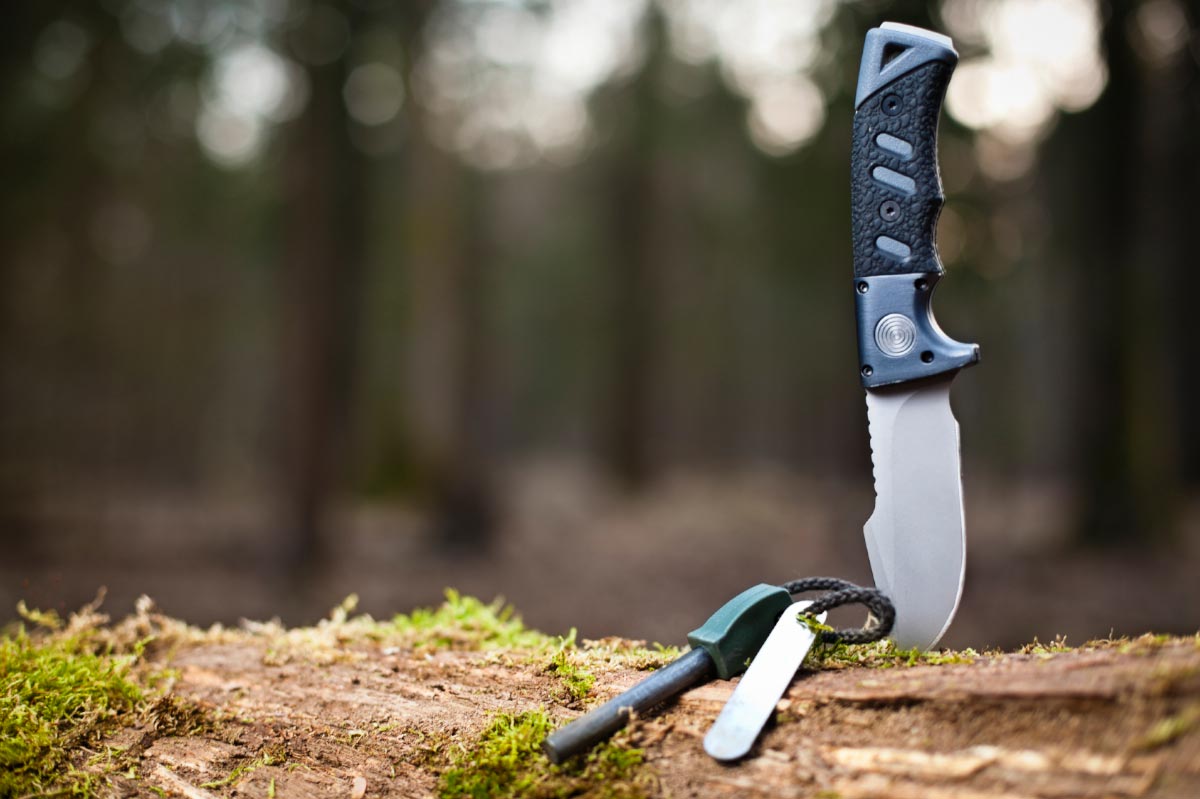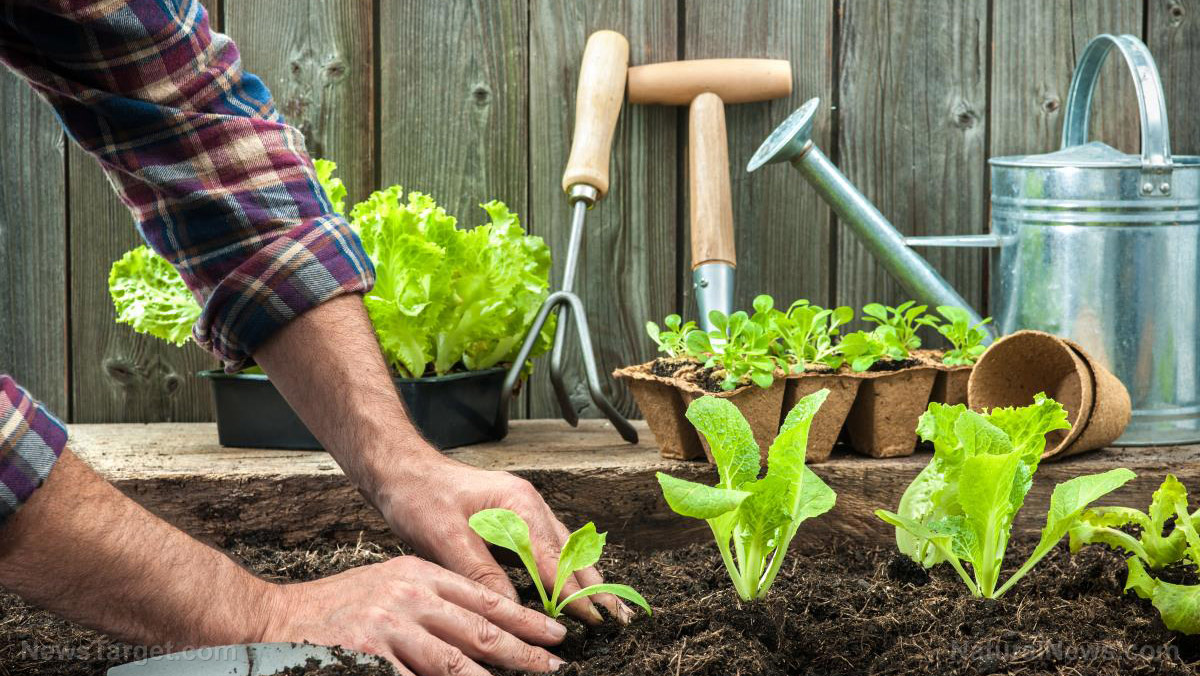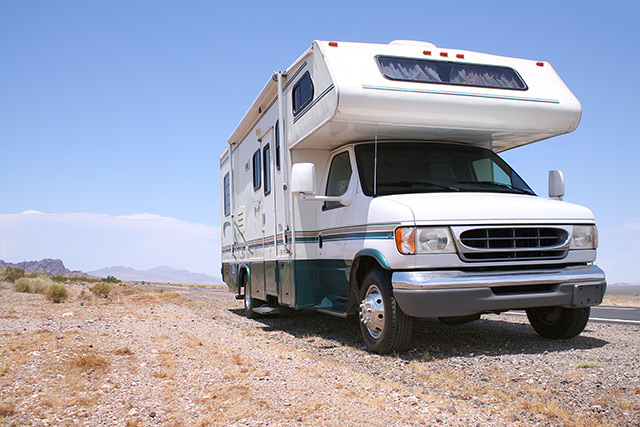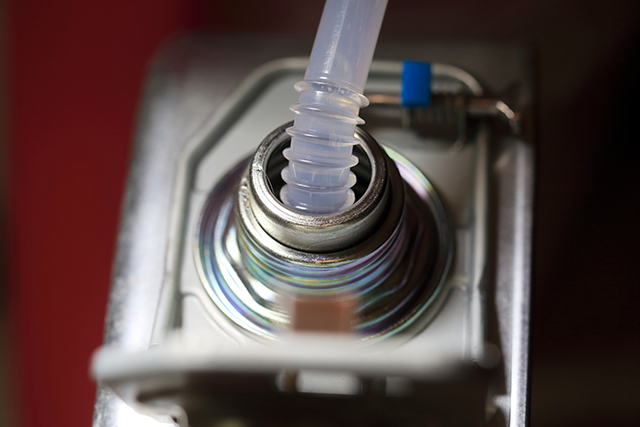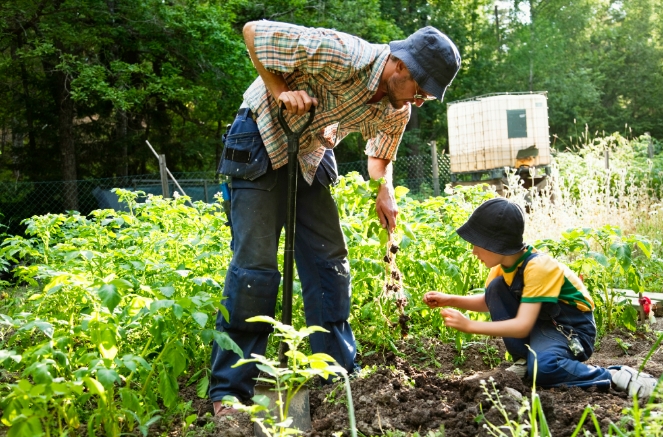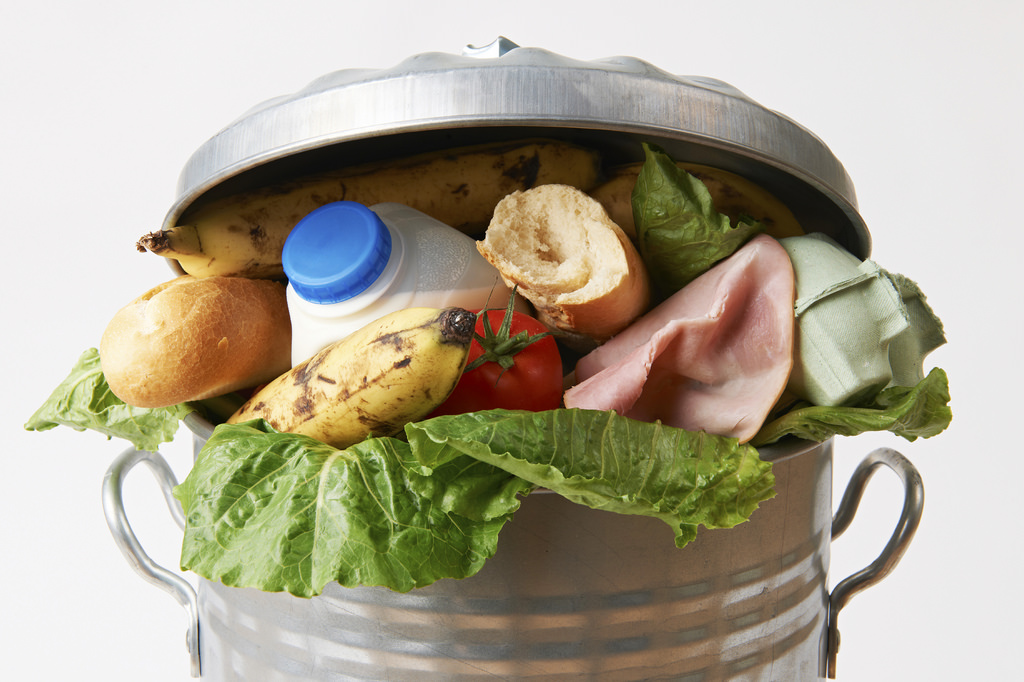There are layers of self-sufficiency: What level are you on?
09/16/2019 / By Zoey Sky

There’s more to prepping than setting up a survival stockpile. In fact, there are seven levels of self-sufficiency, and your preps will determine which layer you’re currently on. (h/t to PreppersWill.com)
Level 1: The primary stage of self-sufficiency
For this level, you’ll need about $1,500 to $2,000. You’ll need to set up a stockpile, so you can survive long-term scenarios like a heavy snowstorm.
Stock up on at least seven day’s worth of food for your whole family and clean, drinking water. You’ll also need other supplies like matches, candles and oil lamps with fuel for one week and a gun for self-defense.
Here are some items that you may want to stock up on before SHTF:
- Canned food
- Dairy (powdered milk, cheese, etc.)
- Eggs
- Fruits
- Grains (e.g., beans, lentils, oatmeal, and rice)
- Honey
- Meat (canned chicken, ham, tuna, etc.)
- Nuts
- Pasta
- Spices
- Sugar
- Vegetables
Families on level 1 are mobile and they can easily bug out if they need to after packing several suitcases.
Level 2: Food reserves
To reach level 2, you’ll need at least $3,000 to set up a month’s supply of food in your survival stockpile.
By level 2, you’ll be more committed to staying in your home since you’ll eventually acquire more preps and will need to make basic changes to ensure that the structure can withstand certain types of emergencies. (Related: Develop these daily habits that help you prepare for emergencies.)
Level 3: Moving into a suburban location and preparing a larger storage area for your supplies
A larger home in the suburbs will come with larger storage space – like a basement for your stockpile. In this level, you need to stock up on enough food and supplies for at least 90 days and at least $5,000.
Prepare an ongoing supply of water and a way to safely get rid of trash and human waste when SHTF. You may want to add a well with a hand pump in your backyard so that a supply of potable water was available and a built-in composting toilet.
Prepare a written plan for defending your home and property, lighting, and emergency heat for about six months. Improve your home defense plans by adding specialized firearms like a scoped rifle, an AR15 rifle, or a shotgun. Make sure each adult in the family has a handgun of their own.
Other preps you’ll need for level 3 includes basic medical and communication equipment (e.g., portable AM radios and ham radio equipment). Focus on making sure your family has enough food, clothing, and shelter.
Stock up on spare parts for your appliances, as well as spare batteries and battery chargers for various devices. Finally, a basic basement fallout shelter or bunker will ensure that your family survives common SHTF scenarios.
Level 4: Working from home
You may encounter some difficulty reaching this level because it requires you to move far away from the city. But by moving to a suburban location, it becomes easier to fortify your property against various threats.
However, you will also need to change your employment patterns. Ideally, you should have a computer-based job that allows you to live near a small town and offer your products or services throughout the country. This ensures that you can move to the country without losing your source of income.
Level 5: Setting up a country mini-farm
Preppers on this level need to try and grow at least double your family’s annual food consumption. Use organic growing and feeding methods, so you can keep your mini-farm running in a post-SHTF world without having to rely on outside help or resources.
Producing more food than you can consume each year means you’ll have a small amount of food that can be sold to at a growers’ market or a fresh vegetable stand. When planning your food storage, provide at least six months of your normal food needs without relying heavily on frozen food that requires electricity and refrigeration. Having at least a year’s worth of supplies means you’ll have access to enough food throughout the winter and as you wait until you can harvest the first spring crops.
Additionally, you’ll need a year’s supply of gasoline for your gardening equipment and fuel for lighting. Stock up on propane for your kitchen stove.
Heating for your home must be independent of utility companies. Consider options like solar power, with a backup wood stove.
Level 6: Managing your full country farm
You’ll probably reach level 6 after at least two or three years in level 5.
This level requires time and energy to manage your property, which now resembles a full country farm with backups for long-term operation, even without electricity or gasoline.
Necessary preps for this level include:
- Spare parts for important farming and gardening equipment.
- 20 to 30 gallons of gasoline for at least four to five years of service.
- A full set of hand tools so you can maintain your garden even without any power tools.
- Complete alarm systems for your home and the rest of your property.
- Spare parts and ammunition for firearms.
- Enough food for at least two years so your family can survive about a year of crop failure.
- Long-term storage of seeds that will grow reasonably well in your area.
- A private water supply that relies on alternative power sources.
Level 6 preppers are experienced enough to create most items that they would need without relying on outside help.
Level 7: A fortified country homestead
A level 7 prepper homestead looks a farm but is actually a well-stocked fortress. When you reach this level, you should also have a bug-out vehicle with at least 30 days’ worth of food and supplies and a detailed evacuation plan to your bug-out location.
Since this level depends on your personal decisions, it can be difficult to pin down the exact preps that you need. As a level 7 prepper, it’s up to you to decide how you’ll fortify the “ultimate” shelter.
Work your way through the seven levels of self-sufficiency and make the necessary preparations so you can survive when SHTF.
Sources include:
Tagged Under: bugging in, bugging out, Collapse, disaster, emergencies, homesteading, layers of self-sufficiency, off grid, preparedness, prepping, prepping habits, prepping tips, self sufficiency, self-reliance, self-sustainability, seven levels of self-sufficiency, SHTF, survival, survival skills, survival supplies, Survival Tips, survivalist
RECENT NEWS & ARTICLES
Homesteading.News is a fact-based public education website published by Homesteading News Features, LLC.
All content copyright © 2018 by Homesteading News Features, LLC.
Contact Us with Tips or Corrections
All trademarks, registered trademarks and servicemarks mentioned on this site are the property of their respective owners.

